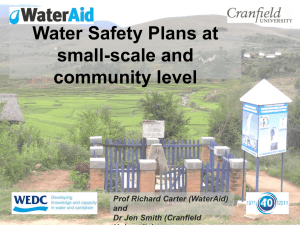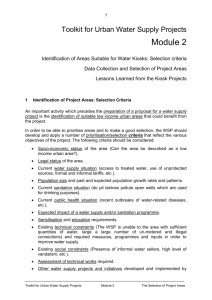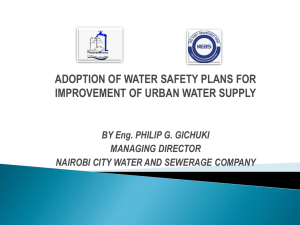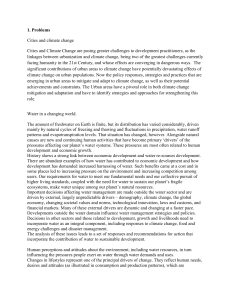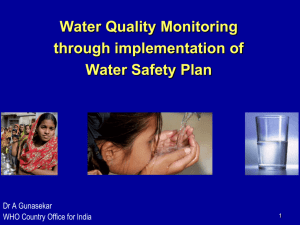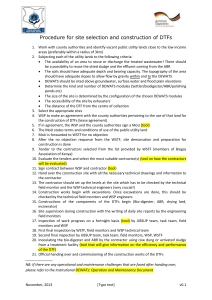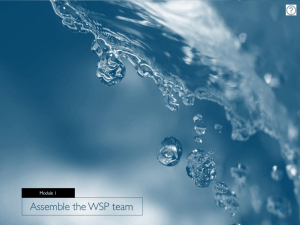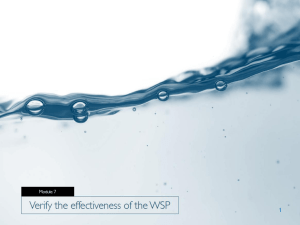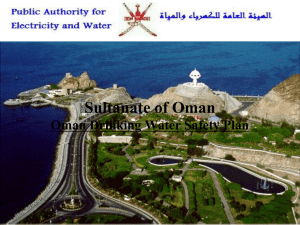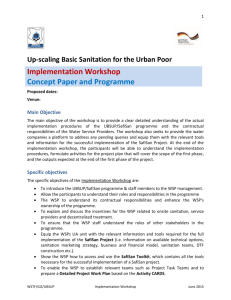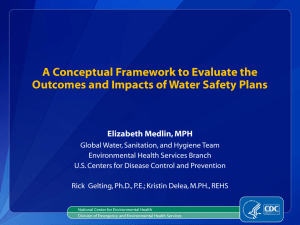Scaling up WSPs - Water Safety Portal
advertisement
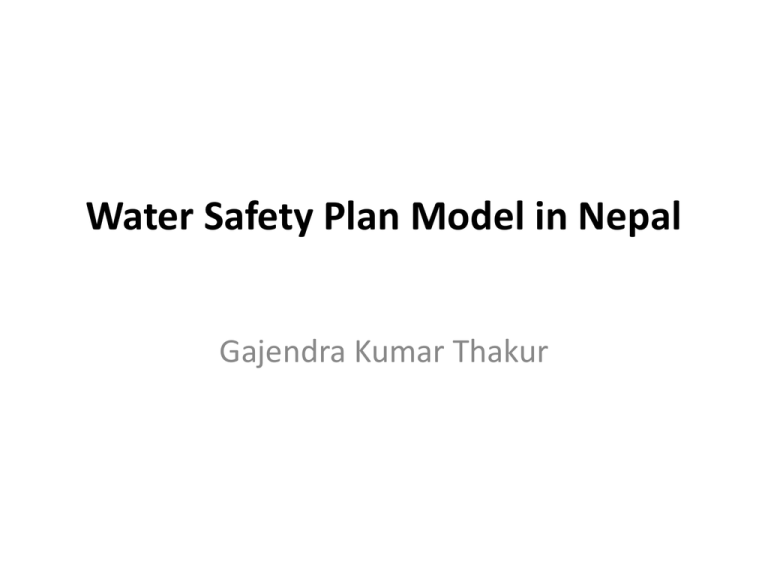
Water Safety Plan Model in Nepal Gajendra Kumar Thakur CONCEPT • A management tool to achieve health based target of water supply schemes WSP Model : Ten Steps • • • • • • • • • • Team formation System assessment Hazard analysis Control measures Monitoring plan Urgent corrective action Validation of control Verification system Assessments of user's satisfaction Documentation Approaches for scaling up WSP • Project wide Water Safety Plan • Community wide Water Safety Plan Implementation of WSP : case in rural water supply scheme • Jante Water Supply Scheme, Morang Jante Water Supply scheme Intake- 4 nos Transmission Pipe line4 km Distribution Pipeline20 km Storage tanks – 3 nos ( each 100 cum capacity) Taps- 23 nos ( public tap stand) Private taps-500 nos intake Intake- 4 nos Storage tanks – 3 nos ( each 100 cum capacity) Result of WSP implementation • Reduced concentration of E-Coli in water sample in the source( intake) ( from 100 to 10 cfu/100 ml) • The WSP team is eager to take measures to make water E-coli free at intake sites • Chlorine is being used to make water safe to drink Challenges in WSP implementation • Making WSP and integral part of project cycle for water supply project of various scale and settings conclusion • WSP model for urban and rural setting is being developed • Project wide and community wide WSP implementation approach help to integrate WSP into the larger numbers of water supply projects Thank You
